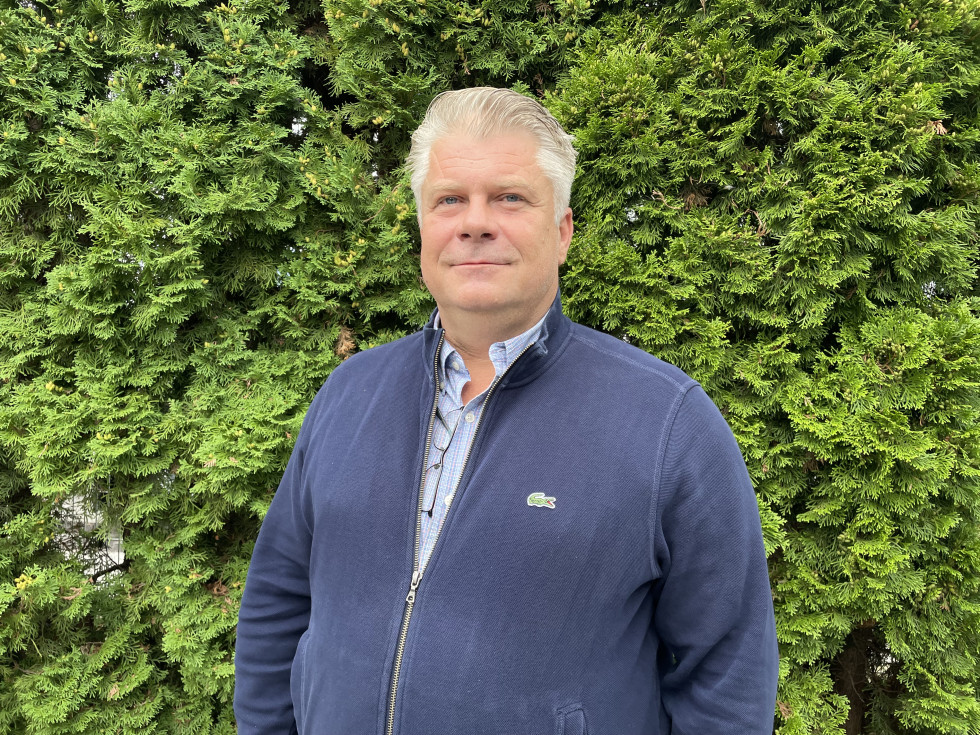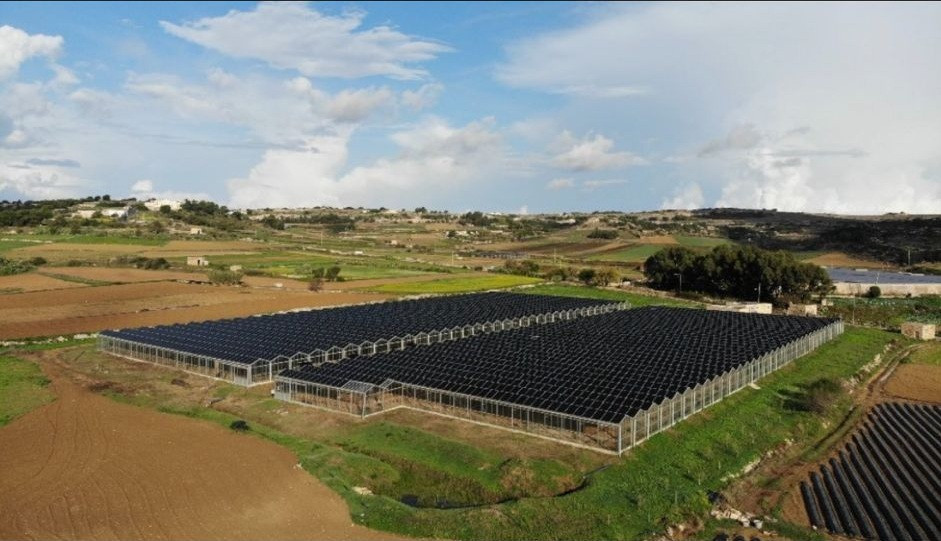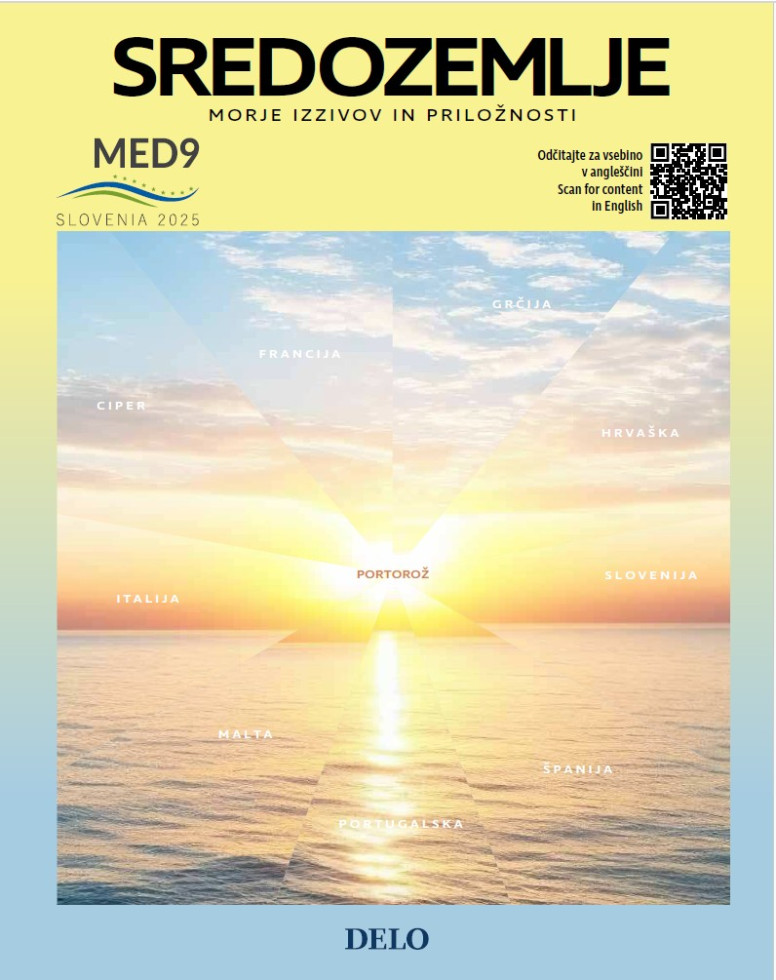He learned the trade in the automotive industry, now he grows watermelons and strawberries
At that time, he left his job at Smelt, a company that was also present in the huge Russian market, and began looking for new business opportunities on an island with a population of approximately 520,000. “I didn’t think I would stay in Malta, as my wife, who is Australian with Maltese roots, and myself had been planning to move to Australia. But her grandmother, who lived in Malta, became seriously ill at the time and we had to extend our stay. I soon found a job at a German company that was also involved in automotive industry. I started out as a technical assistant, but I progressed quite quickly, eventually becoming the vice president of global sales for our products. The company produced systems heating and cooling of seats and steering wheels in cars and engaged interior car design. It also manufactured cables, mainly in cooperation with the Bosch company. Our branches in Ukraine and Hungary collaborated with Prevent and Boxmark. There I noticed the difference in our company's business culture compared to that of Slovenian companies. We employees were treated much better and paid well abroad, but we knew about problems in those Slovenian factories. My former employer is still extremely successful in global markets today, despite the crisis in the automotive industry. Among other things, we have had an excellent cooperation with the Japanese company Toyota," Gorazd describes the rapid course of business development.
The right environment, the right mentor
I would never have undergone such a good personal development in business in Slovenia as I did in Malta. I worked in a company with a German-Maltese business model combination, which provided a very stimulating environment.
He found himself in an extremely productive environment, where he also made some close friends. “The CEO of our company in Malta was Colin Tabone, son of the former President of the country, Vincent (Ċensu) Tabone. I considered him a very good mentor in business and life in general. He was very strict and consistent, and among other things, he did not tolerate any corruption. I would never have undergone such a good personal development in business in Slovenia as I did in Malta. I worked in a company with a German-Maltese business model combination, which provided a very stimulating environment; I had full support from my superiors, and I can be very satisfied with what I have achieved. I left the company in 2012 because the strain and stress were taking a toll on my health, and my family was also suffering from my absence. At that time, I wasn't just prospering in the business world – Carmen and I started a family with the birth of Matjaž and Maja. Unfortunately, they don't speak Slovenian, but at least they have Slovenian names. I was mostly on the road, almost every week I was on a different continent. I was constantly on a plane for eight years. So, there was a lack of time for learning Slovenian during their childhood, and later they showed no particular interest in it. Well, they do understand some words", says Gorazd.
When it was time to find a less stressful job, the family moved to Australia for two years. “That’s where I discovered the Gold Coast, where I can even see my new home in the future. Regarding my job, it was clear to me that I had to do something different about it. I bought a house on the Gold Coast and renovated it, while also relaxing by fishing. After two years, we returned to Malta, where the children continued their education, among other things. Then my father also fell ill, which is why I have been coming in Slovenia more often since then," said Gorazd presenting the pulse of the Fras family, who now come to his native country every month as he visits his father in a nursing home and at the same time takes care of the family home in Hoče.
His twenty-three-year-old son Matjaž is studying in London, focusing on artificial intelligence. After having finished her studies at the college in Valletta, his daughter Maja, who is two years senior to her brother, works in one of the largest law firms in Malta. Her father has never been tempted to return to the country on the sunny side of the Alps: “Slovenia is very beautiful, but I never seriously considered returning there for good. I like to come for a visit, but I don't see myself here in the future, especially not when it comes to business. The culture and relationships abroad suit me much better," admits Gorazd, who was ready to start a new chapter in his business life upon returning from Australia.
Farming and nature are a real relief
I rented some fertile agricultural land in Malta and set up greenhouses with solar panels where I grow watermelons and strawberries, and recently planted 400 olive trees.
"I was looking for a new challenge. Initially I flirted with returning to the automotive industry, where I felt at home, and I had a well-developed network of business contacts. In the US, I briefly tried my hand at the house renovation and sales business, but I was again far from my family. Then I tried renewable energy sources in Croatia, but it got complicated with obtaining documents. Then I finally rented some fertile agricultural land in Malta and set up greenhouses with solar panels where I grow watermelons and strawberries, and recently planted 400 olive trees,” he reveals the new project that fulfils him
The land is owned by the Testaferrata count family, where agricultural land is the most expensive in the world due to scarcity, with prices today reaching up to 1.5 million euros per hectare.
"My property is situated near the city of Rabat, which is the most fertile area on the island. There are numerous water sources, but we also collect rainwater. Watermelons are planed in January and harvested in May. Strawberries are harvested until June, and people are queuing up to buy them. The biggest problem is the lack of labour, this year we even stopped picking strawberries early because it no longer made sense due to the high cost of labour. However, I can be satisfied, among other things because the government supports the cultivation of indigenous varieties of vegetables and fruits and protects domestic production. At the same time, I produce electricity with 3,300 solar panels manufactured by the Slovenian company Bisol, which I sell to a state-owned company with which I have a 20-year contract. I am considering starting to grow leafy green vegetables in two or three years, i.e. lettuce and spinach, which would grow on floating platforms with computer-controlled temperature, humidity, watering, and sun or shade," says about his plans the tireless Gorazd, who is also a big dog lover. The property is guarded by two Belgian shepherd Mason and the dog Nix. The trio of furry friends is completed by the Romanesque water dog Pippo.
At the beginning of May, the price of watermelon in Malta is 1.5 euros per kilogram, and then its price drops every week, and a kilogram of strawberries costs 9 to 11 euros. "I'm happiest in this business because I've moved away from people and working with them, which was very stressful. I work away from people, in natural environment and really enjoy it. Rabat and its surroundings has been spared from mass tourism and is quite peaceful."
Mass tourism is transforming the island
With the arrival of foreign workers multiculturalism has brought along a different everyday life routine, which affects the safety and well-being of the population.
It is a completely different situation in tourist centres, where everything is subordinated to visitors. Malta, with an area of 316 square kilometres and a population of just over half a million, is one of the most densely populated countries in the world. "It has changed a lot during the last 30 years. At the beginning of my stay here, it was a more or less peaceful island, without overtourism. The locals were much more relaxed and friendly, willing to help at every step. Then, at the turn of the millennium, particularly since 2004, when Malta became a member of the European Union, there was a tourism boom that happened far too quickly. The country was simply not ready for such a boom, it lost control over the impact of mass tourism. One of the major problems is waste, i.e. waste management. In recent years, the population has grown, and so did consumption, with tourism is taking its toll. Malta is a rocky island with no natural resources except sea, almost everything has to be imported. At the same time, with the arrival of foreign workers multiculturalism has brought along a different everyday life routine, which affects the safety and well-being of the population. Some time ago, there was also a large influx of illegal migrants from the sea, we saw boats with unfortunate people every day, but this has calmed down now," explains Gorazd.
In addition to all of the above, Malta attracts foreign investors, and in the business world, there is a great emphasis on systematic order. "For several years now, the identity card has covered practically everything, including tax and medical data and even any registration of the cardholder's business. Here, one cannot avoid obligations in one company by closing it and opening a new one or even several others. If you violate the business rules in one company, sanctions also affect all the other company that one owns or co-owns," explains Gorazd, who likes to go fishing in his free time. "My friends and I go fishing for tuna, swordfish, and lampreys, or mahi-mahi. Of course, seafood predominates, but traditional food also includes roasted rabbit with Maltese potatoes, which to me has the best taste in the world. Malta is also famous for its bragioli, which are known under the name of beef olives. These are slowly braised stuffed beef rolls," says about his favourite food the potato lover from Slovenia, who also enjoys the sociability of the Maltese. "Almost every day, there is a religious holiday celebration in some place, honouring saints and the like. The Maltese people like entertainment, and there is a lot going on there not only on weekends, but also during the week."
Malta is quite expensive, so its residents often head on a large catamaran to party on Sicily, where food is cheaper and the change of scenery is also welcome. A ride on a fast ferry lines (catamaran), which are among the largest and fastest in the world, is very comfortable and takes one hour and 45 minutes.
Gorazd Fras, who holds a Maltese passport in addition to his Slovenian one, also notes that there are many bookmakers on the island, as Malta hosts the largest gaming competitions, which are very popular there, and computer science and artificial intelligence are strongly promoted in the educational and business circles. All of this also comes very useful in his business plans with the digitisation of vegetable production, which will easily find its way to many hotels, restaurants, and shops. Before his possible move to the continent 'down under', he will clearly face no shortage of challenges in the middle of the Mediterranean.





